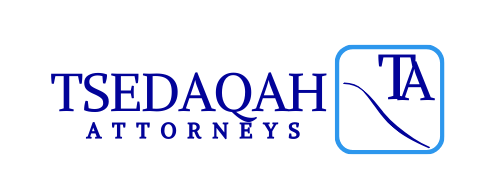TAX EVASION
- Taxes are statutory obligations of every citizen and businesses in a country. It is thus a major factor in determining how much income you keep to yourself either as a business or as an individual.
- Tax Evasion is considered illegal in Nigeria as in most countries. It refers to a deliberate act on the part of a tax payer not to pay tax.
TAX EVASION SCHEMES
- Tax evasion schemes may include, but not limited to, the following:
- Non Registration for Taxes or Failure to furnish a return or to keep the required records;
- Making an incorrect return by omitting or understating any income (irrespective of the source or morality of the source), including the non-disclosure of offshore businesses and income;
- Claiming of Fictitious expenses (including false claims on pension schemes) and assets;
- Deliberate claiming of tax credits (e.g. capital allowances) to which claimant know they were not entitled;
- Falsification of tax clearance certificate, tax receipts, withholding tax credit notes,
PENALTIES FOR EVASION
- Our tax laws have several monetary penalties and fines, as well as criminal sanctions for tax offenders
- Section 40 of the FIRS ACT of 2007 (the Act establishing the FIRS) on the failure to deduct or remit taxes also recommends imprisonment for a period not exceeding three years in addition to the payment of the uncollected or unremitted taxes along with a penalty of 10% of the tax withheld or not remitted per annum plus interest at the prevailing CBN rate
TAX AVOIDANCE
- Tax avoidance is a legitimate way of avoiding tax by exploiting loopholes and provisions in the tax code that allow you to reduce the amount of tax that you pay on your income.
- Let us look at various forms of loopholes and provisions one can use to avoid tax.
Donate Money to Organizations listed in schedule 5 of CITA
- It is quite often that companies donate money to certain organizations and NGO’s. This is considered a good cause and a sign of corporate responsibility.
- However, ONLY donations to certain organizations are allowed to be excluded from taxable profits. Some of them are The Boys Brigade, Boys Scout, Christian Council of Nigeria, Girls Guide, Any Educational Institution recognized by the law, Islamic Education trust, ICAN, Nigerian Red cross etc.
When you sell an asset, reinvest it into the same class of asset
- If your business owns assets such as equipment that it uses for its daily operations, it is possible that you may wish to sell them once the assets are no longer useful to the business.
- In the Capital Gains Tax Act, any profit on disposal of an asset attracts a charge of 10%. However, if the proceeds of the asset sale is utilized to acquire another asset within the same class of asset, the tax payable can be deferred for as long as the new asset is in used.
- Please not that if you use the money to buy a car (even if it is for your business) it will not apply.
Deduct Vat that you pay on your purchases from vat that you receive on your supplies
- Value Added Tax is paid on certain goods and services as mandated by law. However, for companies who are into selling goods and services, you are allowed to deduct the vat that people charge you for your purchases.
- For example, if you are into supplies of furniture and it cost you N10m to acquire materials that you need to produce the furniture it is likely that you will be charged an extra 5% of the N10m (N500k) as Vat.
- Consequently, if you sell the furniture for N15m you will charge your supplier N750 vat. When you are remitting to the government you should deduct N500k that you paid from the N750k that you collected giving you a net remittance of N250k only.
- Most people end up paying the N750k denying themselves the opportunity of retrieving their cost. Your business surely does not need this generosity.
Invest in industries that the government is promoting with tax incentives
- The Nigerian Government as a matter of policy usually have certain sectors of the economy which they want people to invest in.
- To get people to invest in these sectors government usually gives certain incentives. One of such incentive is a Pioneer Status.
- If a company is given pioneer status then they are exempted from paying income tax for a minimum period of 3years and a maximum of 5 years. So they enjoy free tax status you may have to invest in pioneer industries. Dividends paid out of profits during the pioneer period is also exempted from taxes.





